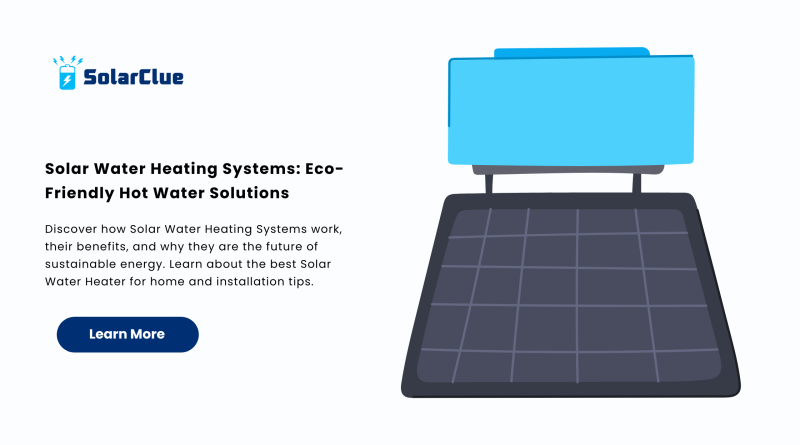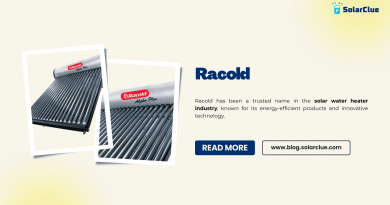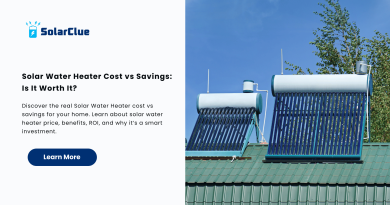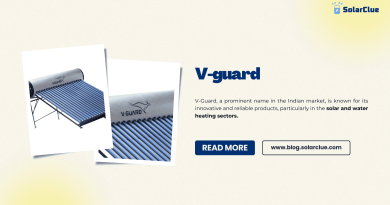Solar Water Heating Systems: Eco-Friendly Hot Water Solutions
As the world embraces cleaner energy, Solar Water Heating Systems are gaining popularity in homes and businesses alike. These systems use the sun’s energy to heat water, reducing electricity bills and minimizing environmental impact. If you’re considering switching to solar, understanding how these systems function and how they benefit your household is essential.
Table of Contents
- 1 What is a Solar Water Heating System?
- 2 How Do Solar Water Heating Systems Work?
- 3 Benefits of Using Solar Water Heating Systems
- 4 Components of a Solar Water Heating System
- 5 Choosing the Best Solar Water Heater for Home
- 6 Installation and Maintenance Tips
- 7 Solar Water Heating vs. Traditional Water Heating
- 8 Government Incentives and Subsidies
- 9 Environmental Impact of Solar Water Heating
- 10 Common Myths About Solar Water Heating
- 11 Ideal Locations for Solar Water Heating Systems
- 12 Integration with Solar Power System
- 13 Lifespan and Warranty
- 14 Cost and ROI of Solar Water Heating Systems
- 15 Conclusion
- 16 FAQs
What is a Solar Water Heating System?
A Solar Water Heating System (SWHS) is a mechanism that captures solar energy to heat water for domestic or industrial use. It typically consists of solar collectors, a storage tank, a heat exchanger, and sometimes a backup heating system. This eco-friendly solution harnesses the power of the sun to deliver hot water efficiently.
How Do Solar Water Heating Systems Work?
These systems operate through a simple yet effective process:
- Solar collectors absorb sunlight and convert it into heat.
- The heat is transferred to a fluid (usually water or antifreeze solution).
- This heated fluid moves to a storage tank via a heat exchanger.
- Hot water is then ready for household use.
There are two main types:
- Active systems – use pumps to circulate water.
- Passive systems – rely on gravity and natural circulation.
Benefits of Using Solar Water Heating Systems
Installing a Solar Water Heater offers several advantages:
- Lower energy bills by reducing reliance on electricity or gas.
- Environmentally friendly, reducing your carbon footprint.
- Low maintenance and long-lasting systems.
- Increases property value and makes your home more energy-efficient.
Components of a Solar Water Heating System
Understanding the parts helps in better maintenance:
- Solar Collectors – Flat-plate or evacuated tube collectors.
- Storage Tank – Holds the heated water.
- Controller and Pump (for active systems) – Regulates flow and temperature.
- Backup Heater – Ensures hot water availability during cloudy days.
Choosing the Best Solar Water Heater for Home
When selecting the best Solar Water Heater, consider:
- Your location and average sunlight.
- Water usage and family size.
- Roof space for solar collectors.
- Budget and available government incentives.
Some popular options include:
- Flat plate collectors: Affordable and ideal for most climates.
- Evacuated tube systems: Highly efficient in colder regions.
Installation and Maintenance Tips
Proper installation ensures efficiency and longevity:
- Hire a certified installer.
- Position collectors facing true south (in the Northern Hemisphere).
- Tilt angle should match your local latitude.
- Clean collectors and inspect for leaks periodically.
Solar Water Heating vs. Traditional Water Heating
Solar Water Heating Systems offer:
- 60-80% reduction in water heating costs.
- Less dependence on fossil fuels.
- Higher initial cost but long-term savings. In contrast, traditional systems are cheaper upfront but more expensive in the long run due to energy consumption.
Government Incentives and Subsidies
Many governments offer:
- Tax credits for solar installations.
- Rebates and subsidies.
- Net metering benefits if combined with a solar power system.
Environmental Impact of Solar Water Heating
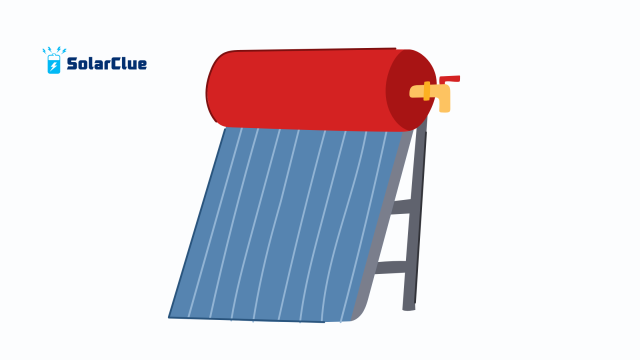
Using Solar Water Heaters helps:
- Reduce greenhouse gas emissions.
- Decrease dependence on non-renewable energy.
- Promote sustainable living and energy independence.
Common Myths About Solar Water Heating
- “It doesn’t work on cloudy days.” – Most systems have backup heaters.
- “It’s too expensive.” – Government incentives reduce initial costs.
- “Maintenance is hard.” – Basic upkeep keeps the system running efficiently.
Ideal Locations for Solar Water Heating Systems
Regions with high solar irradiance benefit the most. However, modern Solar Water Heating Systems are designed to perform even in colder climates with proper insulation and backup support.
Integration with Solar Power System
Pairing a Solar Water Heating System with a solar power system boosts your home’s sustainability and reduces energy bills even further. It’s a smart combo for total energy efficiency.
Lifespan and Warranty
A high-quality Solar Water Heater can last 15-20 years with proper care. Warranties typically cover 5-10 years depending on the manufacturer and installer.
Cost and ROI of Solar Water Heating Systems
Average costs range between $500 to $2,500 depending on size and system type. Return on investment is seen within 3-7 years through energy savings and subsidies.
Conclusion
Adopting Solar Water Heating Systems is a practical, eco-conscious decision. They not only cut down your utility costs but also contribute to a greener planet. Whether you’re looking for the best Solar Water Heater for home or planning to enhance your current solar power setup, this system is a smart investment in the future.
FAQs
1. How much sunlight is required for a Solar Water Heating System to work efficiently?
Solar Water Heating Systems work best in areas receiving at least 4-5 hours of direct sunlight daily, but most systems come with a backup for cloudy days.
2. Can I install a Solar Water Heater myself?
While DIY installation is possible, it’s highly recommended to hire a certified professional to ensure optimal performance and safety.
3. What is the difference between active and passive solar water heating systems?
Active systems use pumps and controllers, whereas passive systems rely on natural circulation and are typically more cost-effective.
4. Is it possible to use a Solar Water Heater in winter?
Yes, evacuated tube collectors and insulated storage help maintain efficiency even during colder months.
5. How long does it take to recover the cost of a Solar Water Heater?
Depending on usage, location, and incentives, most users see ROI within 3 to 7 years.
For more information, tips, and updates, feel free to visit our website at solarclue.com and don’t miss out on expert blogs at blog.solarclue.com—your gateway to sustainable living!

